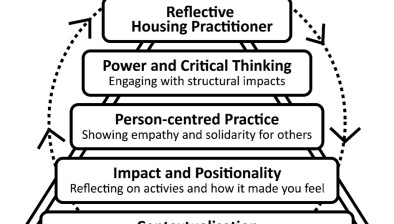Blog: Prime Minister’s real test lies ahead

David Cameron’s victory speech has given a clear indication of the direction of the next parliament, says Julia Unwin chief executive of Joseph Rowntree Foundation and the Joseph Rowntree Housing Trust. The emphasis on compassionate Conservatism gives us cause to hope the reforming Cameron with social justice at the heart of his mission, somehow lost in coalition and deficit reduction, is back.
The extraordinary results in Scotland have emphasised the importance of taking a ‘one-society’ approach to tackling exclusion and poverty. David Cameron’s expressed desire to reclaim the “lost mantle” of “one nation, one United Kingdom” shows commitment to building a Government that works for all nations. Working together on welfare reform, affordable housing supply, building a better deal for those in work and an economy that works while respecting plurality is the only way for Governments in the UK to build a strong, united society.
This time round, with an improved economic picture, the Prime Minister knows he has a huge opportunity to reset the terms of his premiership. In opposition, he became known for a modern ‘compassionate’ Conservatism, championing measures to give local communities and wider society a stronger stake in governing. Yet the realities of coalition politics and economic fragility meant a parliament dominated by painful austerity measures and falling incomes for many as costs rose. Social justice somehow became confined to the difficult universal credit project, whose original aspirations were hampered by the imposition of cost savings and sheer scale of the ambition.
Rising employment and signs of economic recovery have brought welcome good news. But the last few years have been tough, particularly for those on the lowest incomes which now includes many millions in work and living in private rented homes. The much heralded Northern powerhouse has not yet reached large swathes of the North of England, and there are parts of the UK that feel that they never properly recovered from previous recessions. Initiatives in the city regions and beyond to devolve powers must surely be on the agenda. But so too must a national and local conversation about how to provide decent jobs that enable people to live free from poverty, reducing costs, and creating opportunity in every part of the UK.
When John Major recently addressed the Tory Reform Group and lamented the UK having four of the poorest places in Europe, he echoed the unease many feel about our collective failure, over many decades, to tackle the underlying causes of poverty and disadvantage. The answer was never about simply tax and benefit changes. It is about a wholesale re-evaluation of how as a society, as businesses, employers, communities and families we can work together to provide jobs, opportunity, and the support people need to achieve a prosperous and poverty free UK. Our research shows that many frontline services are now at a tipping point, and further cost savings without tackling the underlying causes will cause serious hardship.
To build an economy which works for people at every point on the income scale, we need:
Cameron said he would judge the result on whether he was able to achieve a majority in the House of Commons. The test of his premiership will be whether he can unite all of us to improve social justice through social and economic reform. It is not just a personal mission, but an economic necessity.








